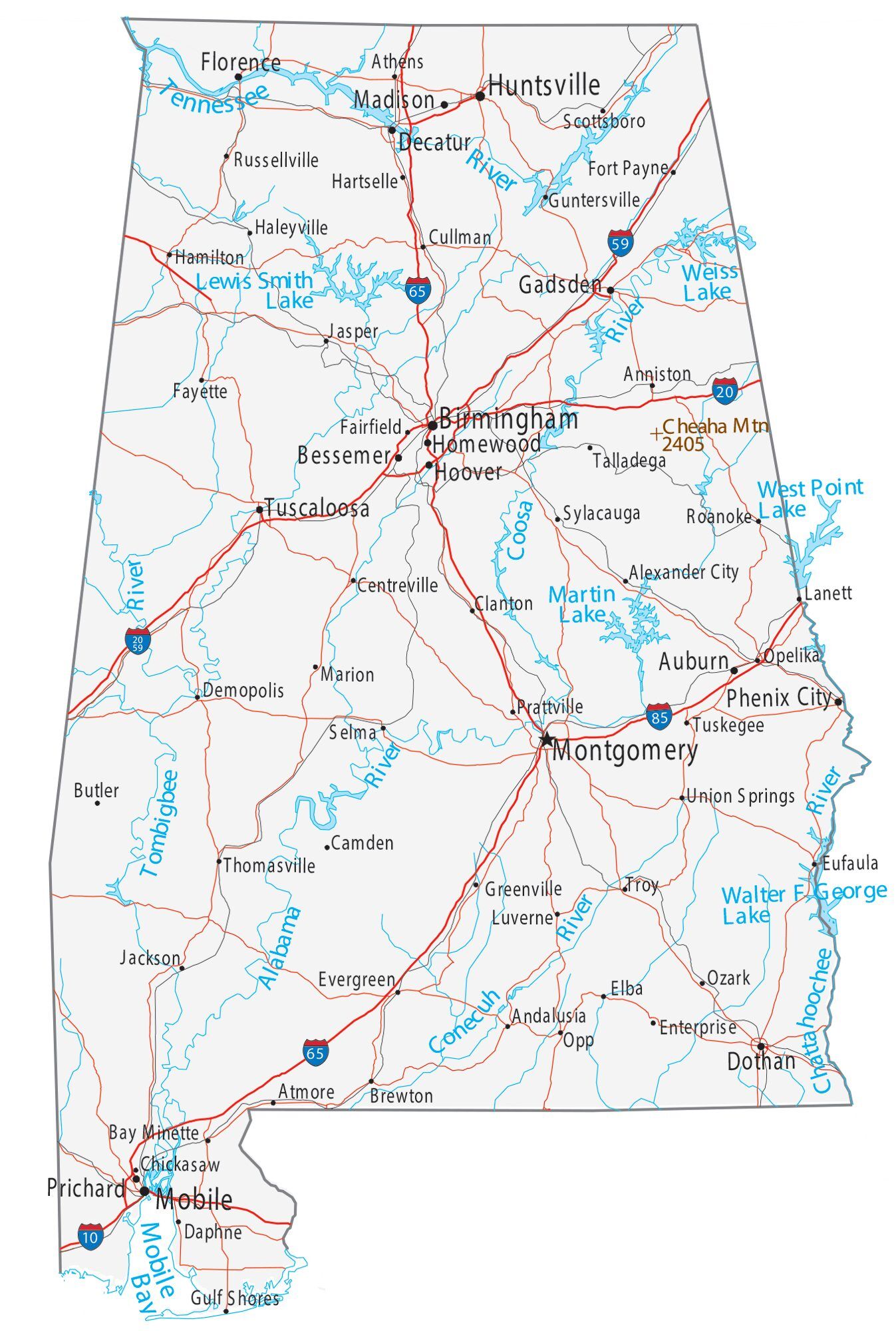Understanding septic tank regulations in Alabama is essential for homeowners, builders, and septic system professionals. Proper installation and maintenance protect public health and Alabama’s environment while helping you avoid fines or costly repairs. This guide explains the key regulations, requirements, and resources for managing your septic system in Alabama.
Table of Contents
- Installation Permits for Septic Systems in Alabama
- Maintenance and Pumping Requirements
- Legal Compliance Guidelines
- Cost Information for Septic Services in Alabama
- Local Resources and Contact Information
- Supportive Resources
- Contacting the Alabama Department of Health
- Frequently Asked Questions (FAQs) About Septic Tank Regulations in Alabama
Installation Permits for Septic Systems in Alabama
Before installing a septic system in Alabama, you must secure a permit from the Alabama health department septic division or your local health department. Permits are required to ensure your property complies with state and county regulations.
Permit Requirements and Costs
The permit process involves submitting an application with site plans and soil test results. Soil evaluations confirm the property’s ability to support a septic system, a critical step in meeting Alabama septic system requirements.
- Permit Costs: Fees for Alabama septic permits typically range from $200 to $500, but prices may vary by county. Additional charges may apply for inspections during and after the installation process.
- Steps to Apply: Start by contacting your local health department or the Alabama health department septic office for instructions and required forms.
Tank Size and Placement Guidelines
Regulations for septic tank installation Alabama include specific sizing and placement rules. Tank size depends on household water usage, typically based on the number of bedrooms in your home. Placement must comply with setbacks from wells, property lines, and water sources to prevent contamination.
Soil conditions, slope, and drainage patterns are also evaluated to ensure proper function, aligning with Alabama wastewater regulations.
Wastewater Disposal Rules in Alabama
Alabama has stringent guidelines for wastewater disposal to protect groundwater and surface water. These rules ensure your septic system treats wastewater effectively. Key requirements include:
- Minimum setbacks: Septic tanks and drain fields must be located a specific distance from wells, lakes, streams, and neighboring properties.
- Drain field design: Soil in the drain field must meet filtration standards outlined by Alabama septic system requirements.
- Prohibited practices: Direct discharge of untreated wastewater into the environment is strictly forbidden under Alabama wastewater regulations.
Adhering to these requirements is crucial for preventing water pollution and ensuring compliance with septic tank laws AL.
Maintenance and Pumping Requirements
Routine care is vital to keep your septic system functioning efficiently. While the state does not enforce strict pumping schedules, experts recommend servicing your tank every 3 to 5 years, depending on household size and water usage.
Best Practices for Maintenance
Regular Alabama septic system inspection ensures your system operates safely and prevents major issues. Here’s what maintenance involves:
- Tank pumping: Removing sludge buildup to maintain capacity.
- Drain field care: Avoid driving or building over the field to prevent damage.
- Professional help: Hire certified experts for septic maintenance Alabama to check for leaks, assess bacteria levels, and ensure compliance with regulations.
Legal Compliance Guidelines
Staying compliant with septic tank laws AL protects you from legal issues and preserves Alabama’s natural resources. Failing to meet these standards can result in severe consequences.
Fines and Penalties
Noncompliance with Alabama septic permits can result in fines ranging from $500 to $5,000 per violation. Illegal discharges or improperly installed systems that harm the environment may lead to even stricter penalties.
Environmental Protections
Alabama enforces strict environmental safeguards under its Alabama wastewater regulations to prevent pollution. Homeowners near sensitive ecosystems, such as wetlands or coastal areas, may need to follow additional requirements for septic installation and maintenance.
Cost Information for Septic Services in Alabama
Knowing the costs involved in septic system management helps you plan ahead. From permitting to pumping, here’s an overview of typical expenses:
- Permit fees: $200–$500
- Septic tank installation Alabama: $3,000–$8,000, depending on system size and soil conditions. Advanced systems or challenging sites may exceed $10,000.
- Pumping costs: $250–$500 per service.
- Inspection fees: $100–$300, depending on the scope of the evaluation.
By hiring professionals who specialize in septic maintenance Alabama, you can ensure quality work and avoid unexpected repair costs.
Local Resources and Contact Information
Alabama offers several resources for homeowners managing septic systems.
State and Local Agencies
The Alabama Department of Public Health (ADPH) and its local offices oversee septic permits and inspections. You can contact them for details on septic tank permits Alabama and assistance with regulatory compliance.
Certified Professionals
For reliable services, hire certified contractors specializing in septic tank installation Alabama or septic maintenance Alabama. Many professionals also offer routine Alabama septic system inspection services to keep your system compliant and efficient.
Trusted Resources
- Alabama Department of Environmental Management (ADEM): A resource for wastewater regulations and environmental protection tips.
- Local health departments: The go-to source for permit applications, inspections, and site evaluations.
Supportive Resources
In addition to state agencies, you can find helpful guides and materials online:
- ADPH website: Offers detailed information about septic tank permits Alabama and related regulations.
- Septic service provider websites: Many companies provide downloadable handbooks and maintenance tips to help homeowners manage their systems efficiently.
Understanding and following septic tank regulations in Alabama is essential for maintaining a safe and functional septic system. From obtaining permits to routine inspections, every step plays a role in protecting public health and the environment.
For more information, contact your local health department or explore resources from the Alabama Department of Public Health. By staying informed and compliant, you’ll avoid penalties, safeguard your investment, and contribute to Alabama’s environmental sustainability.
Contacting the Alabama Department of Health
Environmental Services
Soil and Onsite Sewage Branch
Alabama Department of Public Health
The RSA Tower
201 Monroe Street, Suite 1250
Phone: (334) 206-5373
Fax: (334) 206-5788
Frequently Asked Questions (FAQs) About Septic Tank Regulations in Alabama
1. Do I need a permit to install a septic tank in Alabama?
Yes, obtaining a permit is mandatory before installing a septic system in Alabama. Permits are issued by the Alabama health department septic division or your local health department. The application process involves submitting site plans, soil evaluations, and other documentation to ensure the system meets state standards. Permit fees typically range from $200 to $500, depending on the county and the complexity of the system.
2. What are the guidelines for septic tank sizing and placement in Alabama?
Septic tank sizing is determined by the number of bedrooms in your home and your household’s water usage. For instance, a three-bedroom home often requires a tank with a minimum capacity of 1,000 gallons. Placement guidelines, based on Alabama septic system requirements, require tanks and drain fields to maintain specific setbacks from wells, property lines, and water bodies. Soil conditions and drainage also play a significant role in system placement.
3. How often should I have my septic tank pumped in Alabama?
While Alabama does not enforce a specific pumping schedule, experts recommend pumping your septic tank every 3 to 5 years. The frequency depends on the tank size, household size, and water usage. Regular Alabama septic system inspection and pumping help prevent overflows, backups, and costly repairs.
4. What happens if I don’t comply with Alabama’s septic system regulations?
Noncompliance with septic tank laws AL can lead to penalties, including fines ranging from $500 to $5,000 per violation. Severe violations, such as illegal wastewater discharge, may result in higher fines and legal action. Additionally, homeowners may be required to make costly repairs to bring the system up to code. Staying informed about Alabama septic permits and Alabama wastewater regulations can help you avoid these issues.
5. Are there specific environmental protections related to septic systems in Alabama?
Yes, Alabama enforces strict environmental protections to prevent water contamination. Regulations require proper setbacks from water sources and ensure that systems effectively treat wastewater. Additional requirements may apply to homeowners near sensitive areas, such as wetlands or coastal zones, as outlined in Alabama wastewater regulations.
6. How much does it cost to install a septic system in Alabama?
The cost of septic tank installation Alabama varies based on factors such as system size, soil conditions, and site preparation needs. On average, installation costs range from $3,000 to $8,000. Advanced systems or installations on challenging terrain can exceed $10,000. It’s important to work with certified professionals to ensure compliance with Alabama septic system requirements.
7. Can I install a septic system myself in Alabama?
While homeowners can sometimes handle minor maintenance tasks, septic system installation typically requires a licensed professional. Alabama law mandates that systems meet specific standards, which involve soil testing, proper tank sizing, and drain field construction. Hiring a certified contractor ensures compliance with Alabama septic permits and other regulations.
8. Who do I contact for septic system issues in Alabama?
For permits, inspections, or regulatory questions, contact your local health department or the Alabama Department of Public Health (ADPH). For professional services like maintenance, pumping, or repairs, hire state-certified companies specializing in septic maintenance Alabama.
9. Are there financial assistance programs for septic system repairs in Alabama?
While Alabama does not have statewide financial assistance programs specifically for septic system repairs, some counties or local organizations may offer grants or low-interest loans. Contact your local health department or county office to inquire about available resources.
10. What are the warning signs of a failing septic system?
Common signs of septic system issues include:
- Slow-draining sinks or toilets.
- Sewage backups in your home.
- Foul odors near the tank or drain field.
- Standing water or lush, green patches over the drain field.
Can I Install My Own Septic System in Arkansas?
West Virginia Septic Tank Regulations: What Homeowners Must Know
Vermont Septic System Regulations: What Homeowners Need to Know
Wisconsin Septic System Rules for Property Owners
Ohio Septic Tank Laws: What You Should Know
NH Septic Tank Size Requirements: A Complete Guide







